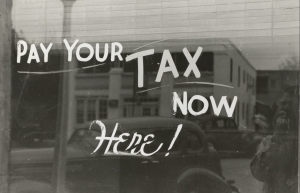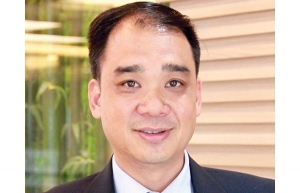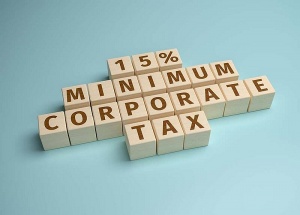An Phat continues to fight for VAT reimbursement
 |
An Phat's tax conflict has been ongoing for four years, and despite the company's belief that it has provided transparent documentation, Hanoi Tax Department has yet to issue a decision on the VAT reimbursement.
On July 12, An Phat was invited by Hanoi Tax Department for a discussion scheduled for the next day. This meeting followed a previous dialogue held on June 23, where the company's representatives sought to resolve issues related to the reimbursement of VAT for periods 32 and 33.
However, following the meeting, An Phat declined to sign the minutes, accusing Hanoi Tax Department of misrepresenting the company's views in the record.
Pham Minh Khoa, director of the company, voiced the firm's disappointment with the proceedings. He mentioned that the company raised certain obstacles and requested answers from the tax authority but alleged that its statements were not accurately or comprehensively recorded in the meeting minutes.
As a result of this deadlock, An Phat has repeatedly refused to sign the minutes drafted by Hanoi Tax Department on June 23, and instead requested the department to respond in writing to the company's concerns.
At the June 23 dialogue, Hanoi Tax Department highlighted that a contract is one of the prerequisites for a VAT refund. However, An Phat's contracts exhibit inconsistencies, leading to a clash between the company’s assertions and the tax authority’s verifications.
Nguyen Thi Sam, An Phat’s chief accountant, argued that the tax authorities have all the powers, duties, and professional competence to establish whether the company has paid and declared taxes correctly or has violated tax evasion laws.
Sam stressed that, based on three criteria – the origin of the goods, the correctness of the export declaration, and the validity of bank payment documents – An Phat has fulfilled its tax obligations and cannot be accused of violating any regulations that would warrant a criminal investigation.
The company’s concerns were raised in a regular session of the Standing Committee of the National Assembly on July 12.
Chairman of the National Assembly Vuong Dinh Hue emphasised the state’s obligation to refund the input tax. Hue criticised the delay in tax refunds, especially at a time when businesses are finding it extremely difficult to access capital.
The Vietnam Cassava Association pointed out that the VAT refund for agricultural products in Vietnam, as well as in other countries, means that businesses that have paid 10 per cent input VAT and then exported the goods (zero output VAT) must be refunded.
According to the organisation, no legal regulations require verification from foreign customers for the exporter to be deducted or refunded VAT. This would be unfeasible and beyond the control of Vietnamese businesses.
The association insisted that when it is confirmed that there are actual goods, actual input purchases in Vietnam, and 100 per cent actual exports to foreign countries as confirmed by customs, businesses must be refunded VAT in accordance with the regulations.
Referring to Official Letter No.181/CSKT-D5 dated January 18 from Hanoi Public Security's Investigation Agency that was sent to Hanoi Tax Department about changing the results of cases suspected of VAT refund fraud, Khoa asserted, "The investigative agency does not have any evidence proving any violation by our company. Accordingly, An Phat is eligible for tax refunds and there is no reason to suspend them."
Khoa also stated that many manufacturing and export businesses in Vietnam are experiencing the same difficulties, and have written numerous times to the government, the Ministry of Finance, and the General Department of Taxation with a desperate request for an urgent resolution to the VAT refund issue.
An Phat's ongoing tax dispute highlights the difficulty that businesses can face with VAT refunds in Vietnam. The company believes that its struggles epitomise the need for significant reforms in Vietnam's tax system to make it more responsive, efficient, and business-friendly.
 | Green logistics remain a taxing endeavour Vietnam’s logistics businesses are advancing on a green path connected with digital transformation, but are also in a highly energy-intensive and polluting industry, raising concerns about the long-term sustainability and financial viability of the sector, experts have said. |
 | Tax Department in Vietnam asks banks to provide transaction information The General Department of Taxation has issued a letter requesting commercial banks and other credit institutions to provide transaction information, account balances, and data as requested by the directors of local tax departments. |
 | UK investors confident in Vietnam’s GMT response Many British investors in Vietnam are large multinational corporations, who view the country as an emerging market or an increasingly promising place for future investment. That said, Vietnam will find many of them to be in the scope of the global minimum tax (GMT) regime and Pillar 2 by the Organisation for Economic Co-operation and Development (OECD). |
 | Vietnam sets October for move towards global minimum tax adoption The Vietnamese government is slated to table the proposed legislation regarding global minimum tax before the National Assembly in October, with the General Department of Taxation (GDT) forecasting an implementation timeline commencing at the outset of 2024. |
What the stars mean:
★ Poor ★ ★ Promising ★★★ Good ★★★★ Very good ★★★★★ Exceptional
Related Contents
Latest News
More News
- Vietnamese businesses diversify amid global trade shifts (February 03, 2026 | 17:18)
- Consumer finance sector posts sharp profit growth (February 03, 2026 | 13:05)
- Vietnam and US to launch sixth trade negotiation round (January 30, 2026 | 15:19)
- NAB Innovation Centre underscores Vietnam’s appeal for tech investment (January 30, 2026 | 11:16)
- Vietnam moves towards market-based fuel management with E10 rollout (January 30, 2026 | 11:10)
- Vietnam startup funding enters a period of capital reset (January 30, 2026 | 11:06)
- Vietnam strengthens public debt management with World Bank and IMF (January 30, 2026 | 11:00)
- PM inspects APEC 2027 project progress in An Giang province (January 29, 2026 | 09:00)
- Vietnam among the world’s top 15 trading nations (January 28, 2026 | 17:12)
- Vietnam accelerates preparations for arbitration centre linked to new financial hub (January 28, 2026 | 17:09)

 Tag:
Tag:




















 Mobile Version
Mobile Version